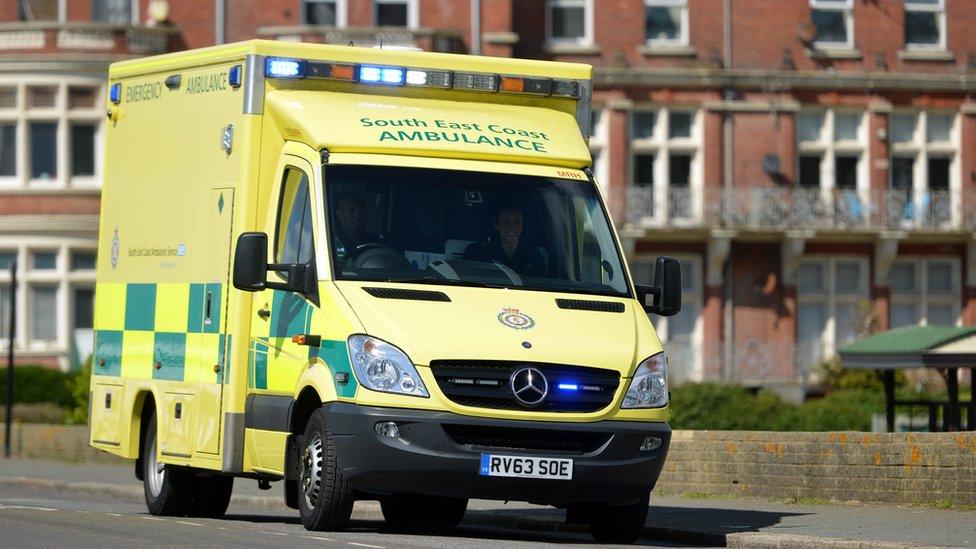'No ambulances' to help Sussex pensioner after fall
- Published

Daisy Filby is one of three pensioners whose deaths involved "issues relating to the prompt dispatch of an ambulance"
No ambulances were available to help a 90-year-old who fell and stopped breathing while she waited for help, an inquest has heard.
Daisy Filby is one of three people whose deaths involve issues relating to "the prompt dispatch of an ambulance", senior coroner Alan Craze has said.
She first called for help at 08:40 BST on 19 June 2017. After several calls, an ambulance arrived at 10:24 BST.
Hastings Coroner's Court heard she was pronounced dead at 10:38 BST.
In the first call, Mrs Filby was put into the least urgent category, requiring a response within 60 minutes.
Calls stacked
She was upgraded twice after she reported pain and later could not breathe.
The inquest heard at the point of her first call, there were 18 calls "stacked" and waiting for a response between Hastings and Brighton, the inquest heard.
The ambulance arrived at 10.24 BST, but Mrs Filby was pronounced dead at 10.38 BST. She died from asphyxiation and hypertensive heart disease.
The coroner asked James Pavey, head of production and workforce planning at South East Coast Ambulance Service, if it was correct to say "you were stretched beyond capacity".
Mr Pavey replied: "We were stretched. At that time we would have been experiencing that regularly."
'Beyond help'
Later, the court heard Anthony Harding, 84, from Wivelsfield, collapsed twice on 21 August after he suffered an aneurysm and his abdominal cavity filled with blood.
The inquest heard he had a visit from a technician, but by the time a critical care support paramedic arrived at 22:21 BST he was "beyond help".
In a report, the emergency control room manager on duty that night said the "demand exceeded the resources available".
Maurice Goodwin, 87, of Eastbourne, died on 31 August after his wife found his trousers were soaked in blood from his catheter.
Special measures
The inquest heard district nurses arrived three hours and 20 minutes after the first call. They found him collapsed and not breathing and called 999.
The inquest heard none of the three cases was declared a "serious incident", which Mr Craze described as "concerning".
Mr Pavey said in 2017 the trust had been in special measures but had been working to improve and was now rated good and outstanding in some areas.
He said a new programme introduced in November 2017 had changed how emergency calls were dealt with.
The inquests continue.
- Published16 September 2019
